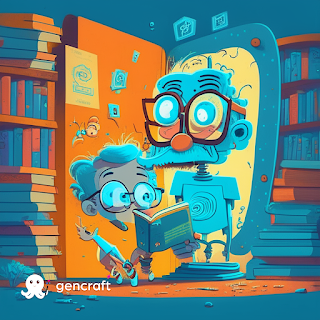Artificial Intelligence (AI) is a rapidly evolving field that has captured the imagination of people worldwide. Here is a summary of some intriguing and noteworthy facts about AI:
AI Origins: The concept of AI dates back to the 1950s when researchers began exploring the possibility of creating machines that could exhibit intelligent behavior. Since then, AI has made significant progress, fueled by advancements in computing power and data availability.
Machine Learning: Machine learning is a subset of AI that focuses on enabling machines to learn from data and improve their performance over time without being explicitly programmed. This approach has revolutionized many fields, including image and speech recognition, natural language processing, and recommendation systems.
Deep Learning: Deep learning is a subfield of machine learning that uses artificial neural networks inspired by the human brain. It has been instrumental in achieving remarkable breakthroughs in areas like computer vision and natural language processing, powering applications like autonomous vehicles and voice assistants.
AI in Healthcare: AI has the potential to transform healthcare by aiding in diagnostics, drug discovery, and personalized medicine. Machine learning algorithms can analyze medical data to identify patterns and make predictions, helping doctors make more accurate diagnoses and treatment decisions.
Ethical Considerations: The rise of AI has raised important ethical questions. Issues such as algorithmic bias, privacy concerns, job displacement, and the impact of autonomous systems require careful consideration and regulation to ensure the responsible and equitable development and use of AI technologies.
AI and Creativity: AI is not limited to analytical tasks but also demonstrates creativity. AI algorithms can generate art, compose music, and write stories. While some argue that AI creations lack true artistic expression, others appreciate the unique perspectives and novel outputs generated by AI systems.
AI and Robotics: AI plays a crucial role in robotics, enabling machines to perceive their environment, make decisions, and interact with humans. Robots equipped with AI capabilities are being deployed in various industries, from manufacturing and logistics to healthcare and exploration.
AI in Everyday Life: AI has become an integral part of many people's daily lives. Virtual assistants like Siri, Alexa, and Google Assistant leverage AI technologies to understand and respond to human voice commands. AI algorithms power personalized recommendations on streaming platforms, online shopping websites, and social media.
AI for Social Good: AI has immense potential for social impact. It is being harnessed to tackle global challenges such as climate change, poverty, and healthcare accessibility. AI is being used to develop efficient energy systems, optimize resource allocation, and enable precision medicine.
The Future of AI: The field of AI continues to advance rapidly, with ongoing research and development pushing the boundaries of what is possible. As AI technologies mature, we can expect to see further integration of AI in various industries, continued progress in autonomous systems, and the exploration of new frontiers.
In conclusion, AI is a transformative technology with far-reaching implications. Its ability to learn, adapt, and make decisions is reshaping industries and impacting our lives in numerous ways. As AI continues to evolve, it is important to foster a balance between innovation, ethical considerations, and responsible deployment to ensure a positive and inclusive future.


